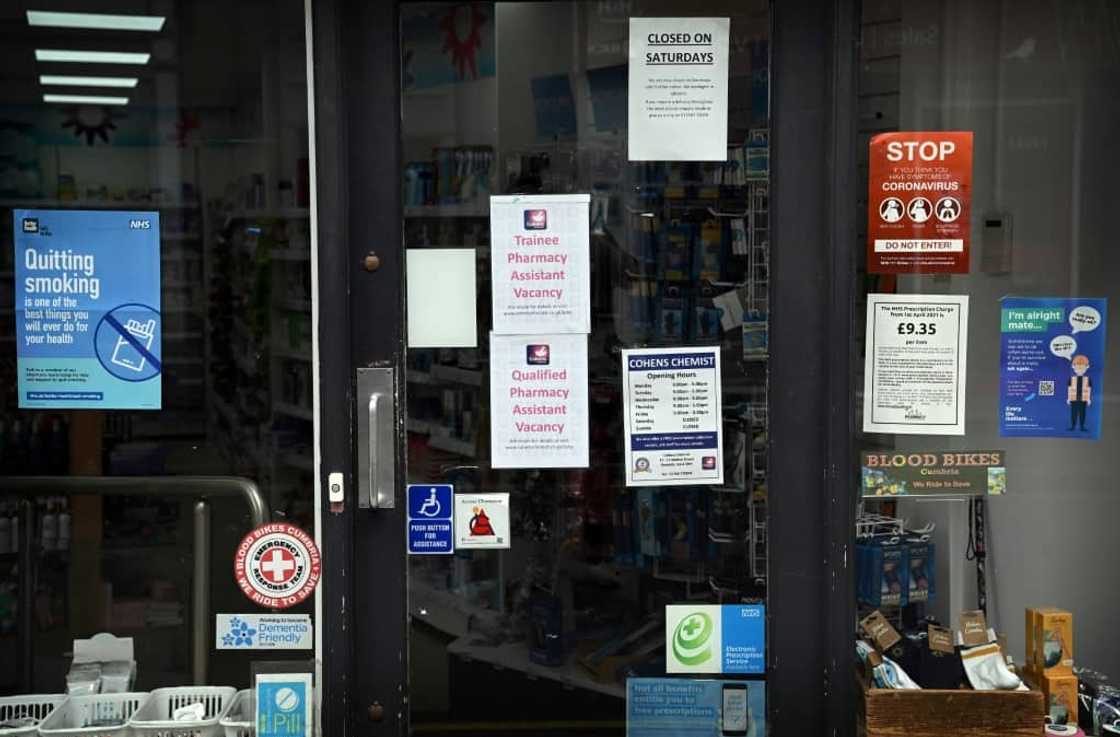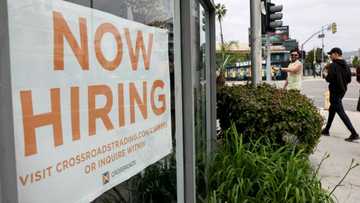UK unemployment climbs as inflation weighs on economy

Source: AFP
PAY ATTENTION: Have you recorded a funny video or filmed the moment of fame, cool dance, or something bizarre? Inbox your personal video on our Facebook page!
UK unemployment rose back to four percent in the three months to the end of May, official data showed Tuesday, as the economy struggles with stubbornly-high inflation.
The unemployment rate increased from 3.8 percent in the three months to the end of April, the Office for National Statistics (ONS) said in a statement.
The rate was back at four percent for the first time since the start of 2022. Analysts' consensus had been for unemployment to remain at 3.8 percent.
Despite the rise, finance minister Jeremy Hunt said Britain's "jobs market is strong with unemployment low by historical standards".
The ONS added that pay excluding bonuses had risen at record levels.
"Due to high inflation, however, the real value of weekly earnings are still falling, although now at its slowest rate since the end of 2021," noted Darren Morgan, director of economic statistics at the ONS.
PAY ATTENTION: Follow us on Instagram - get the most important news directly in your favourite app!
In a keynote speech late Monday, Hunt insisted there could "be no sustainable growth without eliminating the inflation that deters investment and erodes consumer confidence".
UK annual inflation has eased in recent months but remains close to nine percent.
This is far above the Bank of England's two-percent target, triggering numerous interest-rate hikes from the central bank.
"UK inflation is already running far hotter than policymakers had hoped, and price pressures will struggle to abate any time soon so long as earnings continue to grow at the current scorching pace," said Matthew Ryan, head of market strategy at Ebury.
The ONS revealed that average regular pay, not including bonuses, was 7.3-percent higher in the three months to May compared with the same period one year earlier.
While BoE governor Andrew Bailey and Hunt call for pay restraint, thousands of public and private-sector workers continue to strike in a push for wages rises that keep up with inflation.
Mortgage rates
Rising interest rates are slamming mortgage holders and worsening the nation's cost-of-living crisis.
The BoE has ramped up its key lending rate 13 times in a row to five percent in an attempt to dampen elevated inflation.
Speaking Monday, Bailey said it was "crucial" the BoE met its "mandate to return inflation to its target, and provide the environment of price stability in which the UK economy can thrive".
Commercial lenders have meanwhile dramatically lifted their own rates on home loans.
The average two-year fixed rate mortgage hit a 15-year peak of 6.66 percent on Tuesday, according to data provider Moneyfacts.
That was a level last seen during the 2008 global financial crisis and topped last October's high of 6.65 percent.
Soaring mortgage rates have triggered emergency government support, including flexibility over payments and a 12-month minimum period before lenders can repossess homes.
Amid the fallout, lawmakers on Tuesday sought testimony from bosses of major UK mortgage lenders.
Henry Jordan, home commercial director at Nationwide Building Society, told the cross-party Treasury Committee that customers on average were faced with monthly repayments costing one-third more.
Andrew Asaam, homes director at Lloyds Banking Group, said despite the turmoil, "arrears remain very low in a historical context and still below what we'd have seen pre-Covid".
The situation was expected to worsen in the coming months, however, as the Bank of England further hikes borrowing costs, in turn pushing mortgage rates even higher, according to analysts.
PAY ATTENTION: Сheck out news that is picked exactly for YOU ➡️ click on “Recommended for you” and enjoy!
Source: AFP




